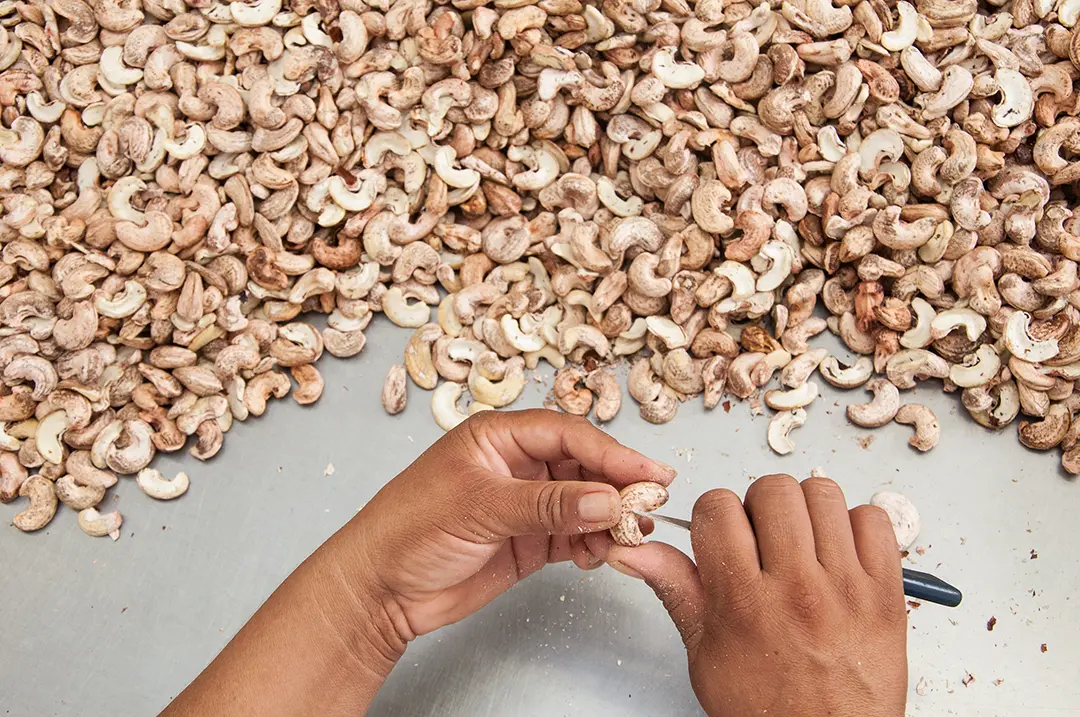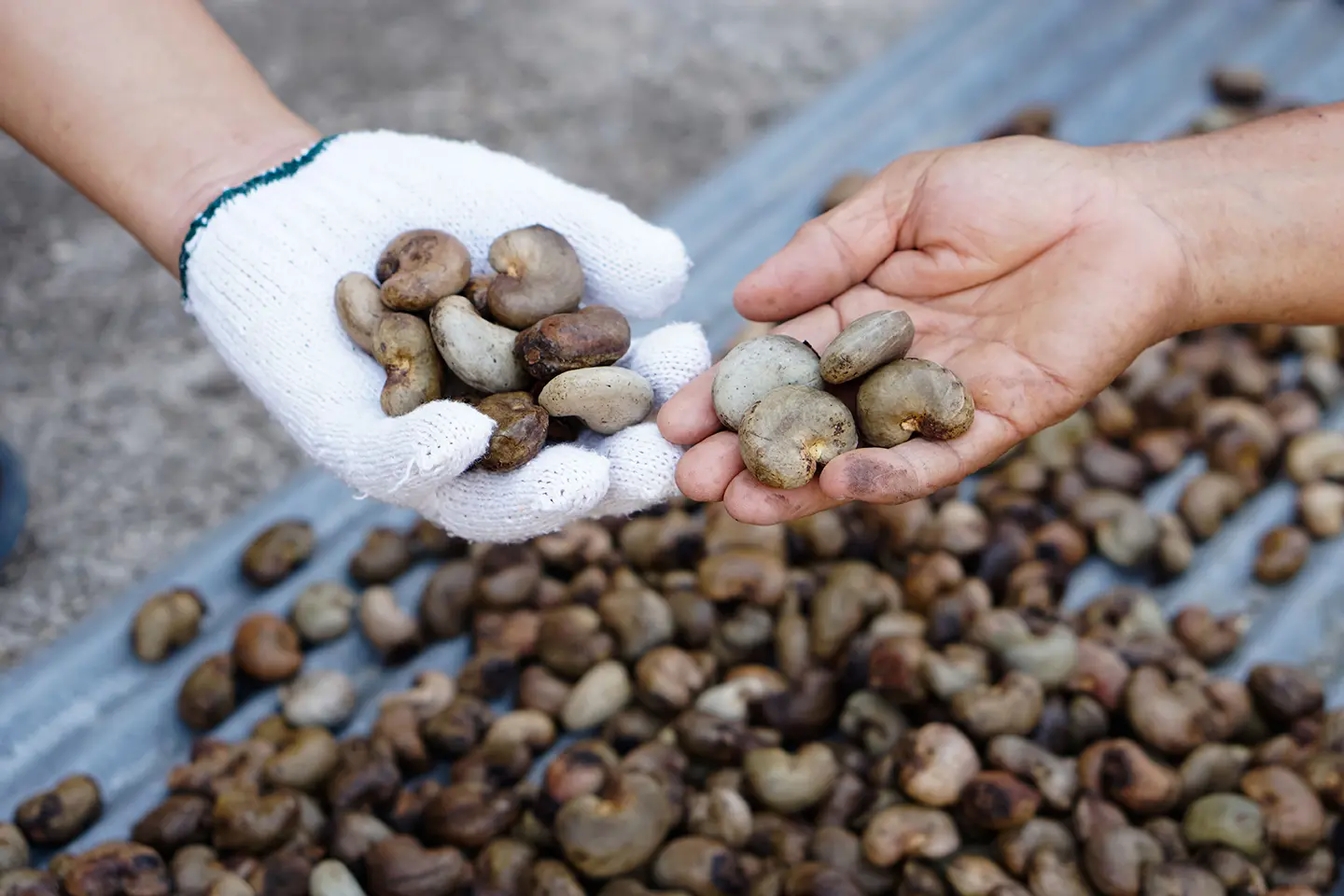Cashews are a beloved nut that’s not only delicious but also packed with nutrients. However, before these crunchy delights make their way to your snack bowl, they undergo a fascinating process known as cashew peeling. In this article, we’ll explore what cashew peeling processing entails, the methods used, and why it’s crucial in bringing those delectable cashews to your table.
Before diving into the intricacies of cashew peeling, let’s understand where these nuts come from. Cashews are seeds found at the bottom of cashew apples, which are primarily grown in tropical regions like India, Vietnam, and Brazil. The cashew nut is encased in a hard shell, nestled between two layers: the outer shell and the inner kernel.

The Importance of Cashew Peeling
Cashews have a double-layered shell, with the outer layer being toxic and causing skin irritation if handled improperly. This is where cashew peeling becomes indispensable. The process of cashew peeling not only removes the harmful outer shell but also makes the nuts edible and ready for various culinary uses.
Methods of Cashew Peeling
Cashew peeling is a delicate operation that requires precision and care. There are primarily two methods used for peeling cashews:
1. Hand-Peeling
Hand-peeling is the traditional method of cashew processing. Skilled workers manually crack open the cashew nuts using specialized tools. This method is time-consuming and labor-intensive but ensures minimal damage to the delicate kernels.
2. Mechanical Peeling
With technological advancements, mechanical peeling has become more prevalent. Machines are used to crack open the nuts, and then they undergo a controlled hot air process to remove the outer shell. This method is faster and more efficient but may result in some damage to the kernels.
Challenges in Cashew Peeling
Cashew peeling is not without its challenges. One of the primary difficulties faced in this process is ensuring that the delicate cashew kernels remain intact. Over-processing can lead to broken or damaged nuts, reducing the overall quality and market value of the cashews.
The Role of Quality Control
Quality control plays a significant role in cashew peeling processing. Ensuring that only the outer shell is removed while keeping the inner kernel intact is crucial. Any damage to the kernels can affect the taste and texture of the cashews.

Cashew Peeling and Industry Standards
The cashew industry adheres to strict standards when it comes to peeling and processing. These standards are in place to guarantee the quality and safety of the final product. Compliance with these standards is essential to meet consumer expectations and international regulations.
Sustainable Practices in Cashew Peeling
In recent years, there has been a growing emphasis on sustainable practices in the cashew industry. Sustainable cashew peeling methods aim to reduce waste, conserve water, and minimize the environmental impact of the processing.
Conclusion
Cashew peeling processing is a crucial step in bringing the delightful cashew nut to your plate. Whether done by skilled hands or with the help of machines, it ensures that you can enjoy this nutritious and tasty snack safely. By understanding the methods and challenges involved in cashew peeling, you gain a deeper appreciation for the journey of these delightful nuts from orchard to table.

